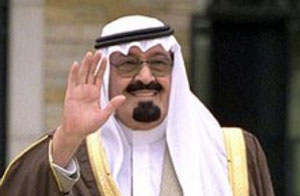Jeddah, Apr 3: Giving another boost to the Kingdom’s higher education, Custodian of the Two Holy Mosques King Abdullah has ordered the establishment of three new universities in Jeddah, Bisha and Hafr Al-Baten. It brings the total number of public universities in the Kingdom to 28.
 Higher Education Minister Khaled Al-Anqari said King Abdulaziz University’s branches in north Jeddah as well as the colleges in Khulais and Kamil would be brought together under the new Jeddah University, which will have a total of 18 colleges and institutes.
Higher Education Minister Khaled Al-Anqari said King Abdulaziz University’s branches in north Jeddah as well as the colleges in Khulais and Kamil would be brought together under the new Jeddah University, which will have a total of 18 colleges and institutes.
Makkah Gov. Prince Mishaal bin Abdullah thanked the Saudi leadership for approving the new universities. “This will help Saudi students to obtain higher education without any difficulty.”
He said the independent Jeddah University would spread knowledge in the region.
The Bisha University will be formed bringing together King Khaled University’s (KKU) branch in Bisha and other colleges in neighboring principalities such as Namas, Balqarn, Sabt Al-Ulya and Tathlith, the minister said, adding that it would have a total of 13 colleges.
The Hafr Al-Baten University will be established by transforming the branches of King Fahd University of Petroleum and Minerals (KFUPM) and Dammam University in Hafr Al-Baten and nearby principalities such as Naeeriya and Al-Khafji. It will have 12 colleges.
Saudi students and teachers welcomed the royal decision.
Abdelelah Saaty, dean of the College of Business in Rabigh, praised King Abdullah for leading Saudi Arabia’s educational renaissance.
“Since he ascended the throne in 2005, the number of government universities has risen from seven to 28. This is a big achievement,” he said.
He said Saudi Arabia required at least 10 more universities within the next five years to meet the requirements of its growing population.
“King Abdulaziz University was designed to accommodate 50,000 students. The number of its students have tripled,” Saaty said. The new Jeddah University will reduce the pressure on King Abdulaziz University, which has more than 140,000 students on its rolls.
Saaty emphasized that the government should continue sending its citizens abroad for higher education to learn from the best practices of reputable universities across the world.






.jpg)
.jpg)

Comments
Add new comment